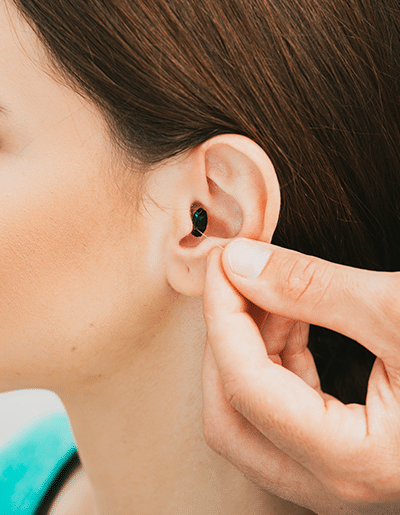
If you’ve made the investment in your hearing health by buying a custom hearing aid, you’ll want to protect the device by keeping it as clean as possible so it can function at full capacity for as long as possible. To that end, there are many tips you can use to keep your hearing aids clean and maintain them at home before needing to come back in for an appointment and perhaps a professional cleaning. Here’s what you should know about hearing aid maintenance.
Daily Cleaning Tips
With frequent and daily exposure to ear wax, a humid environment, and the wear-and-tear of everyday life, hearing aids can become clogged, damp, and worn down without a good daily care routine that uses gentle but effective hearing aid cleaning tools.
Hearing aids with removable batteries should be left open at night to prevent battery drain and to allow the interior of the device to dry out before use the next morning. Specialty dehumidifiers (also called a hearing aid dryer) can also help keep hearing aids dry when not in use, which is key to ensuring the delicate electronics are not exposed to too much moisture.
Whether at night or in the morning, use a pick when cleaning hearing aids of ear wax or other debris and wipe the entire hearing aid with a soft, dry cloth. Make sure not to wear your hearing aids in the shower or bath, as soap and water can build up in them during this time.
Between-Visit Troubleshooting Tips
If, one morning, you wake up to find your hearing aids aren’t working as expected, don’t panic! In many cases, it’s just a simple fix. First, make sure it’s actually on. (It happens to the best of us). Next, if you have removable hearing aid batteries, try replacing them with a new one, making sure they’re placed in the proper orientation. Check for physical blockages that could be blocking or altering the sound. Change volume settings and programs to see if that changes your experience.
If none of these steps works, feel free to call our office for model-specific troubleshooting, or to schedule a time to come in for one of our Doctors of Audiology to diagnose the issue and re-fit the hearing aid so it’s working as effectively as possible.
Battery Best Practices
Hearing aids come in both replaceable battery types and rechargeable ones. Both require routine maintenance in the act of changing the batteries or making sure your hearing aids are properly charged for however long you need them.
For disposable batteries, making sure to remove the tab only after they’re ready to be used is key to making sure you’re maximizing your battery life. Also, make sure to open the battery compartment any time the hearing aid is not in use to conserve power.
Rechargeable batteries offer multiple advantages over the environmental impacts and finicky nature of small disposable ones, although there are fewer hearing aid styles currently for these convenient devices.
Lifespan of Hearing Aids
Hearing loss is a progressive, degenerative disorder that will require long-term adaptive treatment. Unfortunately, no matter how well you take care of your hearing aids, they will eventually need to be replaced. That is because, over time, your hearing loss will outpace the technology you were fit with. Thankfully, the technology used to treat is constantly improving, so there will always be a brain-hearing solution that will continue to help you.
Comprehensive Hearing Solutions in New Jersey
With our H.E.A.R. Method™ Treatment Program of matching each person’s cognitive ability, hearing ability, and lifestyle to a personalized hearing aid, you can rest assured that you’re going to get a customized brain-hearing solution that works for you. Learn more about what makes our approach to hearing loss different by calling our office or contacting us online today.
